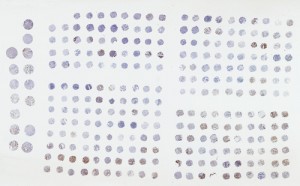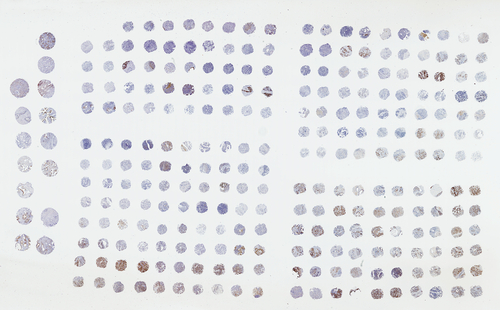 A new study from Brandenburg Technical University Cottbus in Germany has implications both for rheumatoid arthritis patients and the general scientific community. Lead author Dr. Melanie Gruner and principal investigator Dr. Ralf Stohwasser, both in the Faculty of Natural Sciences, used a novel diagnostic approach to establish PA28gamma as a biomarker for rheumatoid arthritis and other inflammatory diseases.
A new study from Brandenburg Technical University Cottbus in Germany has implications both for rheumatoid arthritis patients and the general scientific community. Lead author Dr. Melanie Gruner and principal investigator Dr. Ralf Stohwasser, both in the Faculty of Natural Sciences, used a novel diagnostic approach to establish PA28gamma as a biomarker for rheumatoid arthritis and other inflammatory diseases.
Motivation for the study, “Increased Proteasome Activator 28 Gamma (PA28gamma) Levels Are Unspecific but Correlate with Disease Activity in Rheumatoid Arthritis,” came from a previous association between anti-PA28gamma autoantibodies in the serum of patients with certain autoimmune disorders, a category to which rheumatoid arthritis belongs. PA28gamma is an activator of proteasomes, which are proteins in cells capable of degrading certain other proteins such as steroid receptor co-activator 3 and tumor suppressor p53.
To begin, the team needed to develop a novel, sensitive assay, and they chose to create a sandwich enzyme-linked immunosorbant assay (ELISA) to detect PA28gamma. The ELISA had high specificity and a detection limit of 3 ng/mL. The team then applied serum samples from rheumatoid arthritis, cancer, Sjogren’s syndrome, adult-onset Still’s disease, and connective-tissue disease patients to the ELISA. Serum from healthy donors was also used as a control level of PA28gamma.
PA28gamma was elevated in samples from rheumatoid arthritis patients, as well as from cancer, Sjogren’s syndrome, and connective-tissue disease patients. In the case of rheumatoid arthritis, PA28gamma protein levels correlated with anti-PA28gamma autoantibody levels and patient age, as well as disease activity in patients treated with abatacept (a T-cell directed biological compound).
Although PA28gamma was not unique to rheumatoid arthritis, the team determined a novel biomarker that correlated to disease activity in rheumatoid arthritis patients. This finding could have prognostic value, and future studies will address this hypothesis. The authors believe PA28gamma can be used as a marker in studies for new treatments for rheumatoid arthritis to enhance therapy for patients.


